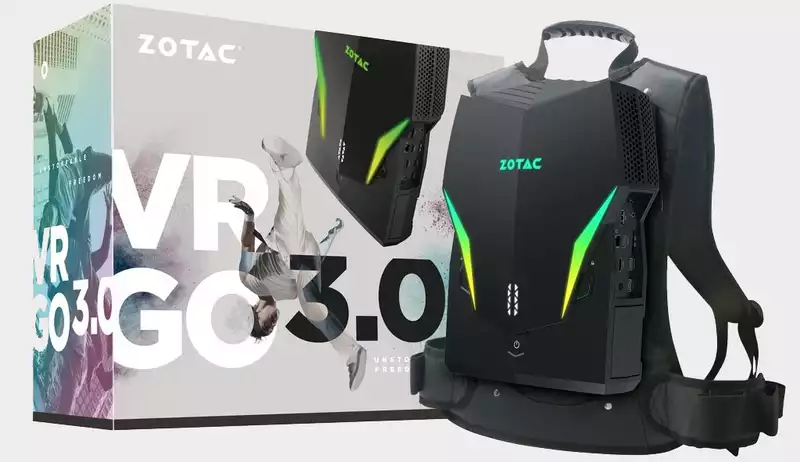VR headsets fall into the wired and wireless categories; the wired ones that connect to a PC offer the best performance but are considerably less convenient. So Zotac's VR Go is a battery-powered PC in a backpack, and the latest model offers more CPU and GPU horsepower than ever before. The only problem is the timing of the new hardware.
Zotac's new VR Go 3.0 has been upgraded to an Intel 9th generation Core i7-9750H processor and GeForce RTX 2070 GPU, a combination the company claims will improve performance by about 25% over the VR Go 2.0.
For reference, the previous generation VR Go 2.0 was powered by a Core i7-8700T and GeForce GTX 1070 GPU; the CPU performance boost is not as significant, and the 8700T and 9750H are both 6-core/12-thread chips, but slightly faster. The 2070, however, is a more substantial upgrade and is the basis for Zotac's performance claims.
Storage is lacking (a mere 240GB SSD), but otherwise the build is respectable. It is also nearly obsolete; Intel has already announced its 10th generation Core "Comet Lake" processor lineup, which will soon hit retail shelves. Also later this year, Nvidia and AMD will announce new GPUs - Ampere and RDNA 2, respectively.
Zotac should have waited a few months before refreshing the VR Go. At the very least, the backpacks and other new PCs should have either Comet Lake CPUs or AMD's latest generation Zen 2 chips.
That said, this remains a good setup for VR gaming or whatever else you happen to want to do with a PC on your back. Also, the overall design is the same as the previous model, which our friends at TechRadar rate as "10 times more comfortable" than the original VR Go.
The Zotac is powered by two hot-swappable 6,000 mAh batteries. According to the company, they can withstand an hour of gaming. However, if you buy and store additional batteries, you can charge the other battery while you play with the other one. Also, only one battery can be replaced at a time, so the game can be paused and resumed from where it left off (without powering down).
No word yet on pricing or when VR Go 3.0 will be available.


Comments